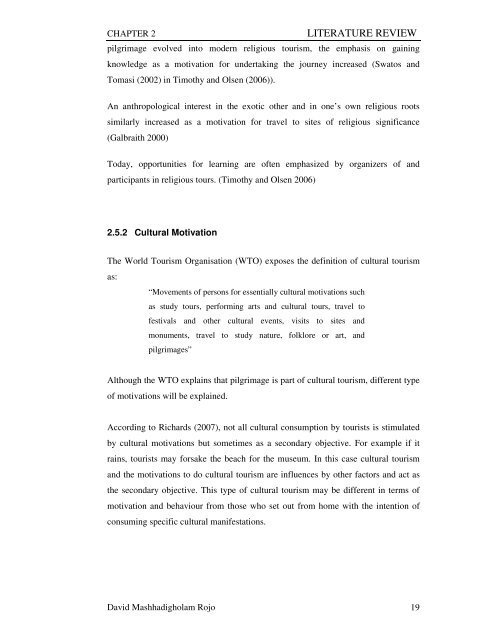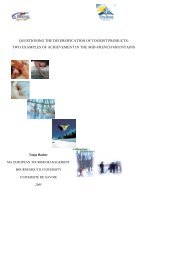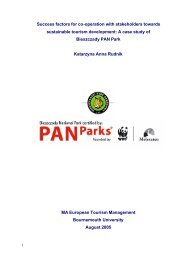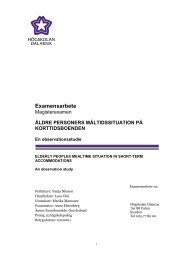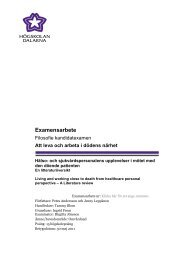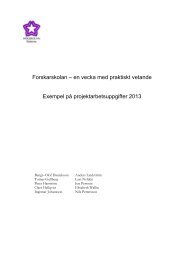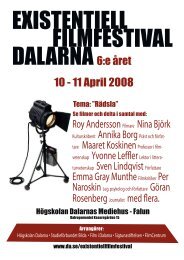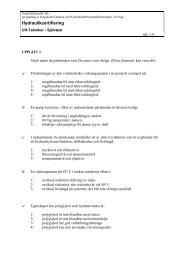Religious Tourism: The Way to Santiago
Religious Tourism: The Way to Santiago
Religious Tourism: The Way to Santiago
Create successful ePaper yourself
Turn your PDF publications into a flip-book with our unique Google optimized e-Paper software.
CHAPTER 2 LITERATURE REVIEW<br />
pilgrimage evolved in<strong>to</strong> modern religious <strong>to</strong>urism, the emphasis on gaining<br />
knowledge as a motivation for undertaking the journey increased (Swa<strong>to</strong>s and<br />
Tomasi (2002) in Timothy and Olsen (2006)).<br />
An anthropological interest in the exotic other and in one’s own religious roots<br />
similarly increased as a motivation for travel <strong>to</strong> sites of religious significance<br />
(Galbraith 2000)<br />
Today, opportunities for learning are often emphasized by organizers of and<br />
participants in religious <strong>to</strong>urs. (Timothy and Olsen 2006)<br />
2.5.2 Cultural Motivation<br />
<strong>The</strong> World <strong>Tourism</strong> Organisation (WTO) exposes the definition of cultural <strong>to</strong>urism<br />
as:<br />
“Movements of persons for essentially cultural motivations such<br />
as study <strong>to</strong>urs, performing arts and cultural <strong>to</strong>urs, travel <strong>to</strong><br />
festivals and other cultural events, visits <strong>to</strong> sites and<br />
monuments, travel <strong>to</strong> study nature, folklore or art, and<br />
pilgrimages”<br />
Although the WTO explains that pilgrimage is part of cultural <strong>to</strong>urism, different type<br />
of motivations will be explained.<br />
According <strong>to</strong> Richards (2007), not all cultural consumption by <strong>to</strong>urists is stimulated<br />
by cultural motivations but sometimes as a secondary objective. For example if it<br />
rains, <strong>to</strong>urists may forsake the beach for the museum. In this case cultural <strong>to</strong>urism<br />
and the motivations <strong>to</strong> do cultural <strong>to</strong>urism are influences by other fac<strong>to</strong>rs and act as<br />
the secondary objective. This type of cultural <strong>to</strong>urism may be different in terms of<br />
motivation and behaviour from those who set out from home with the intention of<br />
consuming specific cultural manifestations.<br />
David Mashhadigholam Rojo 19


